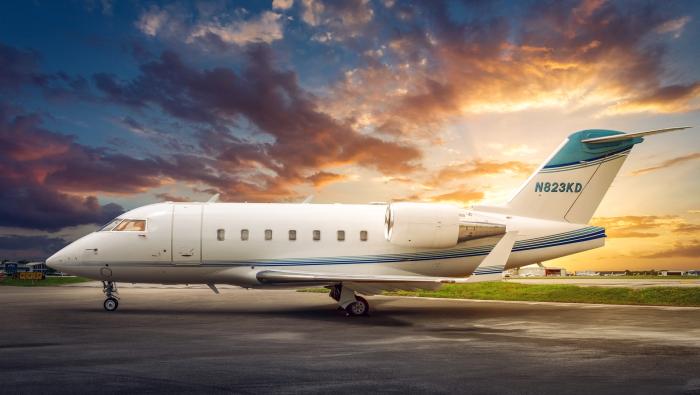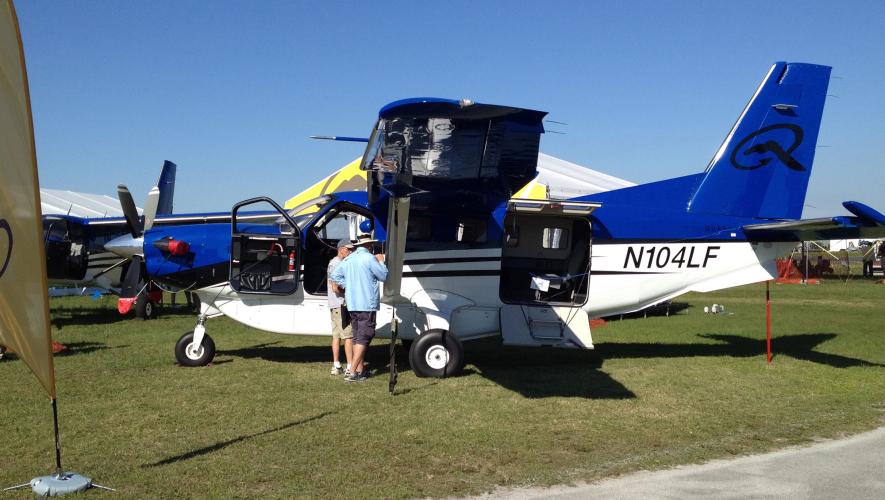Security, crew fatigue and the potential for bureaucracy to inhibit operations, particularly on longer flights outside the region, are among the greatest concerns of European-based corporate-aircraft users. Apart from some concern about airport slot restrictions, which might be combined with ATC delays, operators reported no serious issues for cross-border flights within Europe. To gauge perceived international-operations issues, AIN contacted a number of industry sources, including lobby groups, flight departments and contract pilots who fly different aircraft for assorted clients.
Corporate operators generally dismiss any notion that a lack of recent terrorist activity and the passage of time since 9/11 have created any danger of complacency about international flights. James Barlow, operations manager for Shell Aircraft in Rotterdam, Netherlands, said standard procedures ensure that this is not the case. Shell has detected no complacency at the European handlers it has visited. In fact, “Agents often exceed government requirements,” said Barlow, who oversees two Dassault Falcon 50s and a Gulfstream IV and is awaiting two Falcon 900EXs.
Nor does the Paris-based European flight department of IBM see a problem. Gary Ridley, chief pilot for standards, explained, “We evaluate risk for all flights outside Europe and plan–or take mitigating steps–accordingly.” The company’s evaluation extends to hotels, ground transport and crew “tourist” activities.
John Batty, who oversees corporate-aircraft matters for the British Business and General Aviation Association, regularly flies Cessna Citation Xs and fan-engine British Aerospace Hawker 125-400s for different owners, and he believes “everyone” has become very security conscious.
“We must maintain pressure in some countries to increase their security,” he emphasized. Formerly chief pilot with Motorola European operations, Batty thinks that since 9/11 most flight departments are “more likely to question strangers wandering around unescorted or without ID.”
Flying in Russia
For Barlow, one change is that corporate fliers in high-risk countries are more careful with arrangements covering crew transport and hotels at destinations outside Europe. One area increasingly frequented by business aircraft from Europe and North America is Russia, where pilots report mixed experience.
Ridley, whose flight department operates two Falcon 2000s, has suffered no “speed bumps” in such operations. He reported, “We fly to Moscow and St. Petersburg, and have no problems except in obtaining overflight clearance [on the way] into Russia. But these usually come up quickly.” Another pilot identified the need for crew visas as a consideration but said that overall “things are much better now than they were some time ago.”
Entry to the former CIS region has become easier, even though a flight must also carry a local navigator, said Batty. “Access is granted to most areas, and where carriage of a navigator is required, that requirement is there because ground controllers do not have a sufficiently good command of English, rather than for security reasons.”
For Barlow, several issues include lower-than-preferred assigned flight levels in Russia, which can increase fuel burn and lead to higher local costs. “Russia is becoming even more expensive. [Moscow] Vnukovo doubles in cost this year. Handling costs remain somewhat random and dubious, crew visa restrictions hamper operations, ATC flexibility and weather forecasts remain poor and schedule changes cause permit problems.” In addition, competition between handling agents and sub-agents causes communication delays and increases “middleman” costs.
Ridley said Russian/CIS ground-support services compare well with “Western” facilities; he finds them “efficient but very slow–particularly in issuing visas.” Batty has found that handling rates in Russia compare favorably with those at European airports. “Universal and other major suppliers are doing great work to train personnel in other areas, and the ground people are getting up to speed.”
While personnel are “very enthusiastic,” Batty pointed out that most airports have traffic flows too low to support lavish ground facilities. One flight department manager found service expensive. Ground support in the region is “probably double the cost of service in Europe, though many individuals are excellent.”
Language Requirements
Turning to experience with communications, Barlow cited poor understanding of English–the international language of aviation–among Russian air traffic controllers, a problem other pilots find in Europe’s oldest cultural regions. “We have a major problem even in Europe,” confirmed Batty. “The worst offenders are France, Spain and Italy.” While most other countries don’t strictly enforce the use of English, Batty repeated that it is “a major issue at busy European airports.”
Even where English is offered, quality may be poor, especially in the Asia-Pacific region: “China and Japan are problem areas. English is used, but competency levels are not good,” said one operator. He offers a solution: “The basic rule of speaking slowly and clearly and using only standard phraseology is vital.” Barlow and Ridley agree that ATC is best in Europe. Ridley singled out the UK as offering the best ATC service; Barlow believes service is poorest in Africa.
European ATC
So if European ATC is so good, how is the use of reduced vertical separation minimums (RVSM) working? It is working very well, said both Barlow and Ridley.
One pilot is frustrated that flights to German destinations such as Frankfurt are often subject to cruise-altitude restrictions, denying operators the economic advantages of flying high.
Rather, corporate aircraft flying to Germany can be assigned to modest altitudes of, say, 22,000 to 24,000 feet when pilots would prefer to be above 30,000 feet– where Ridley says business aircraft are not wanted. Batty has experienced another problem: “RVSM seems to work well over Europe, but there are still issues regarding wake turbulence over the North Atlantic tracks that need to be addressed.”
Barlow has “nothing but praise” for Eurocontrol, although he points out that within Europe “aircrew are always concerned about airport slot restrictions, combined with ATC delays.” But he conceded that this has improved “in the last few years.” Given Eurocontrol’s bureaucratic nature, Batty sounded one warning. “Charges need to be kept under control; we need to be constantly vigilant,” he said.
Airport and Airspace Congestion
Such observations occur against a background of increasing European air traffic. “Congestion is increasing on the ground and in the air,” said Batty. “The major difference is that national ATC suppliers have made improvements and congestion in the air is being mitigated.” IBM crews also report improvements. Things are “much, much better than they were, say, four or five years ago. In the bad old days of having to call departure flow control within two hours of departure, delays were horrific, with some countries not talking to each other. Now, 15 minutes is very often the maximum required,” said Ridley.
Barlow pointed out that congestion depends on the airport and local events that might preclude parking. “In general, Eurocontrol has reduced ATC problems and airports remain very flexible.” Looking forward, Batty is frustrated, saying “congestion will only get worse” because no new airports are being built.
Are European operators aggravating the situation by making additional non-European trips? Batty believes they are, and Barlow is sure that’s true. “We are flying internationally much more.” Barlow said the trend has been toward an increase in flights to the Asia-Pacific region and fewer within Europe.
With regard to access, Barlow acknowledged “understandable slot restrictions at major international airports,” such as London Heathrow–the world’s busiest international airport–and Asia-Pacific points such as Hong Kong and Tokyo. Otherwise, access restrictions are most likely to be linked to semi-military airfields requiring prior permission. Some governments are helping to increase access rights, but “military fields make halfhearted attempts to cooperate.”
Escalating Costs
Corporate operators agree that handling and fuel have seen the largest price increases, with one reporting that costs have “risen above inflation in all areas” except ATC, where European prices have fallen this year. Barlow has a long list of such increases, including “handling fees in [the Asia-Pacific region], Africa and Russia; hotel fees (outside Europe); airport parking; and landing fees discriminately worldwide.”
He attributes such increases to market conditions, monopoly situations and operators passing on to consumers higher security costs and taxes. Of particular concern are overstated charges that include a negotiating margin. He said, “A worrying development is that increasingly a dispute produces a reduced bill, suggesting an increased ‘padding’ of aviation-services invoices.”
Batty reports a “relentless rise” in user fees from handling agents and service providers. Over time he has developed a principle–“the poorer service you get, the higher the charges. And the further south and east you go, the same applies.”
With European operators flying more to Asia-Pacific destinations, often using longer-range aircraft (offering flights of 10 hours or more), sufficient rest is an issue. “Fatigue is a major concern,” said Batty. “On the plus side, crews [no longer] have to position to staging stops; [they] can be carried on these long-range aircraft [which have] adequate facilities to provide good rest areas.” This latter point is a factor in selection of new aircraft, according to Barlow.
“Crews are allowed to ‘nap’ in the cabin and the cockpit,” said one pilot. When a flight carries a third crewmember, one pilot can rest in the cabin while the extra pilot occupies the cockpit. Shell always carries a flight attendant on such flights. Batty advises pilots adjusting their circadian rhythm after long-range flights, “Always set your watch and sleep in local time; ‘cat nap’ if you feel the need, but do not get full rest outside the local regime.” Barlow wants to see better en route rest facilities for crew.
Asked about new equipment easing cockpit life, Batty listed satellite communications, as well as flight-management, GPS and enhanced ground-proximity warning systems. Barlow added Jeppesen “flight bag,” global tracking, “glass cockpit” technology and increased mobile-phone coverage worldwide among other developments to that list.
Since increasingly automated information can make a perceived excess of paperwork even more frustrating for an overworked flight crew, which international locations are the biggest culprits? Pilots agree that Russia is one, with others listing the Middle East and Canada.
A Difficult Destination
Batty said, “Anywhere east of Europe requires ‘oodles’ of paperwork.” Barlow said long-range crews want governments to minimize bureaucracy, attach importance to customs and immigration clearance and focus on the expeditious disembarking of passengers.
Both pilots are critical of arrangements covering flights to or from the U.S. Barlow said that the facility for electronic (or telephone) filing of customs requests is set up mainly for Canada/U.S. travel. “External flights have problems, from lack of comprehension of European tail numbers to unknown airports of departure. We resort to the fax.”
This contributes to a perception of insularity, with European pilots identifying the U.S. as variously one of the world’s “tough spots to visit” or “least favorite destinations.” According to Barlow, the U.S. is “by far the most difficult and least flexible nation” with respect to customs and immigration. He outlines such requirements as “pre-warning of separate immigration and customs departments at individual airfields and even [the Department of] Agriculture on occasion by fax, followed by phone calls.”
Barlow complained of “non-return of confirmation and lack of knowledge of personnel.” He called the international visa waiver “a godsend,” since it provides an annual exemption from the requirement for an entry permit on each visit. In addition, he finds officials inflexible, explaining “Should a flight arrive in the U.S. 20 minutes early, customs often will not attend until the stipulated time.”
Batty said international operations to the U.S. are “OK, once you are in–getting in is the major problem. The U.S. is my least favorite destination because the Department of Homeland Security has completely lost the plot. Measures that it has put in place are intrusive and do not achieve any improvement in security.”







